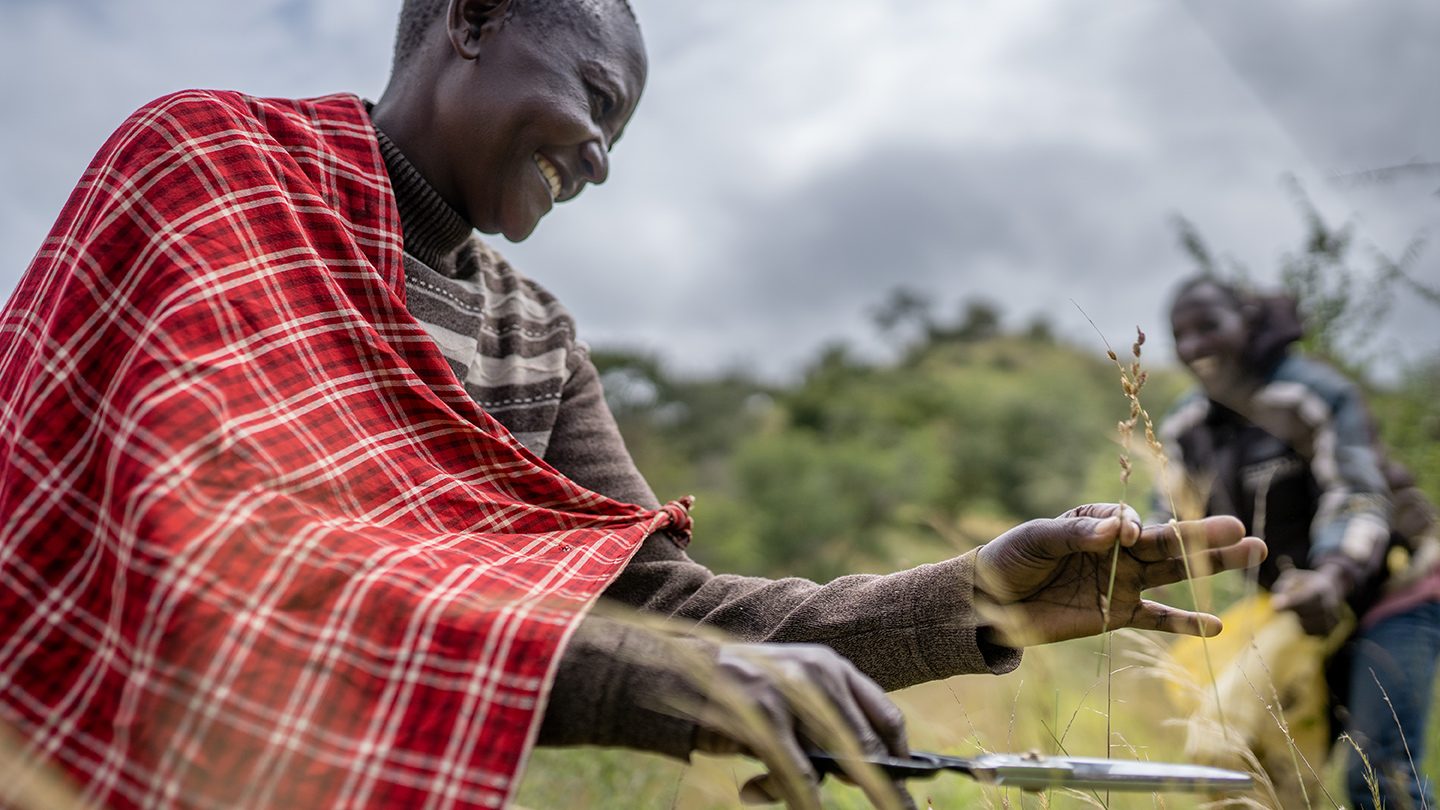
Supported by a grant under UNDP-AFCIA, Savannas Forever is working with Maasai pastoralists to identify, collect and propagate native seed combinations for climate resilience. Photo: Phil Kabuje/UNDP Tanzania
Around the world, Indigenous Peoples are among the most vulnerable to the impacts of climate change due to their reliance on natural resources, historical marginalization and dispossession, and infringements on their rights to their lands and traditions. Yet their knowledge and practices can offer valuable climate solutions that can advance mitigation efforts, enhance adaptation strategies and build resilience.
In East Africa, the Indigenous Maasai people play a crucial role in preventing land degradation and conserving ecosystems through their practices that promote harmonious co-existence with nature. However, the pasturelands of Kenya and Tanzania, where most of them live, are being severely impacted by continuous droughts, threatening the Maasai way of life. Scaling climate change adaptation measures rooted in Indigenous knowledge is therefore crucial to increasing the region’s resilience to climate change impacts.
With support from the UNDP-Adaptation Fund Climate Innovation Accelerator (AFCIA), under the global Adaptation Innovation Marketplace, three Maasai communities in Tanzania’s Arusha region are involved in reforesting 15 acres of land and restoring grassland biodiversity by replanting native species. Savannas Forever, a non-profit research and development organization, is working closely with communities in the villages of Arkaria, Mti Mmoja and Loiborsiret to make this happen.
"Prolonged drought affects the livelihoods of Maasai communities since they depend on livestock keeping. Many cattle have died during periods of drought, leading to food insecurity and poverty," explains Nai Nancy Laizer, Assistant Director of Savannas Forever.
Native plants – including grasses, legumes, and herbaceous species – improve the health and quality of the pastures and enhance the milk production of livestock. As such, they help improve food security, especially as the impacts of climate change continue to intensify.
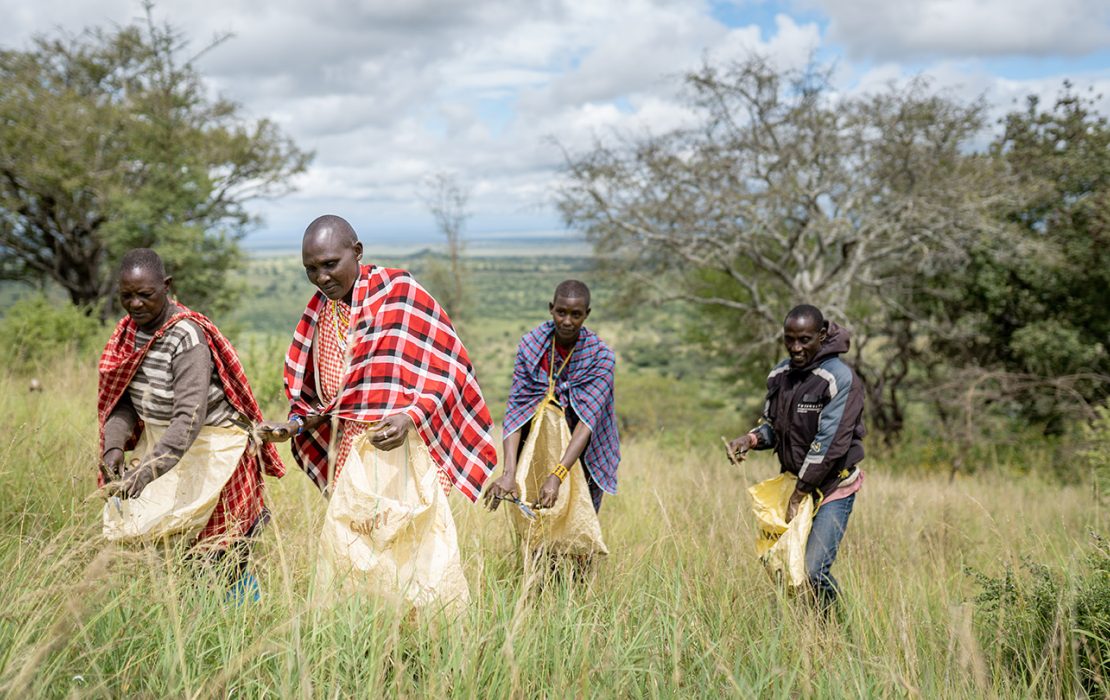
Collecting seeds. Photo: Phil Kabuje/UNDP Tanzania
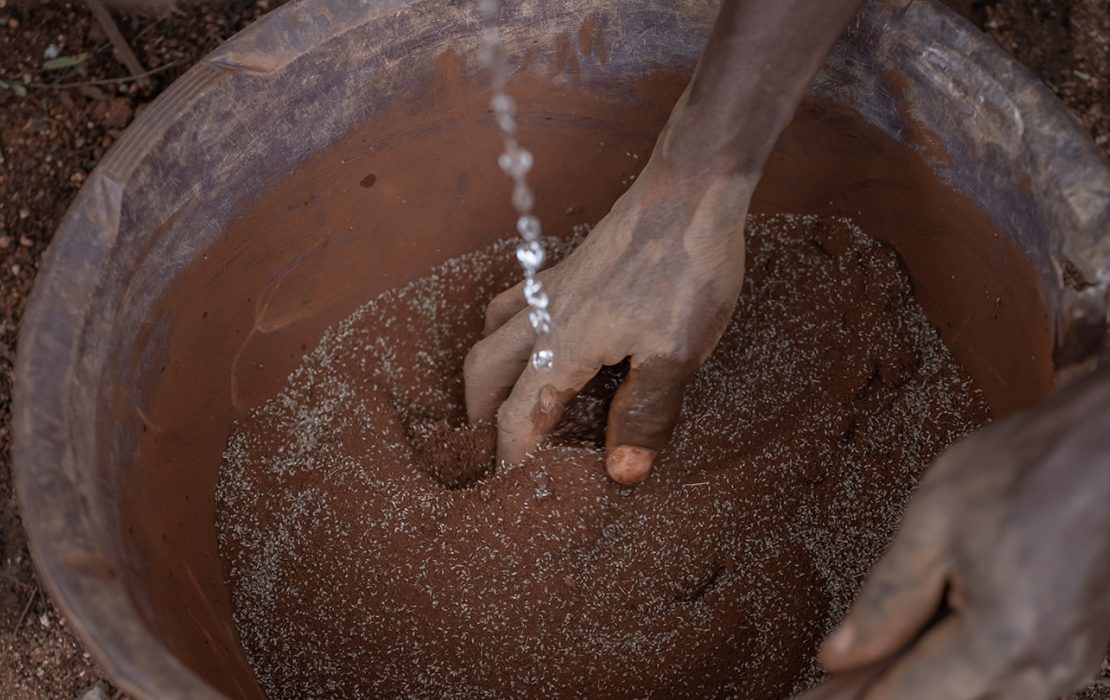
Preparing seeds for planting. Photo: Phil Kabuje/UNDP Tanzania
Margareth Petro, a Maasai woman from Arkaria, noted that the initiative has brought significant changes to her life. "We are greatly benefitting from having a reliable source of grazing pasture, ensuring our cattle are well-fed. All of this has also enabled us to earn money to purchase goats and send our children to school,” said Margareth.
The initiative integrates Indigenous knowledge in selecting the species to be planted and employs local women and young people to collect the seeds and cultivate productive plant mixtures. Once grown, the plants serve as fodder for livestock and sources of new seeds for the local communities.
To involve the entire community and encourage them to replicate the measures, Savannas Forever selects champions who serve as model collectors and inspire others. These champions, mostly women and young people looking for seasonal employment, earn additional income from collecting and cleaning seeds.
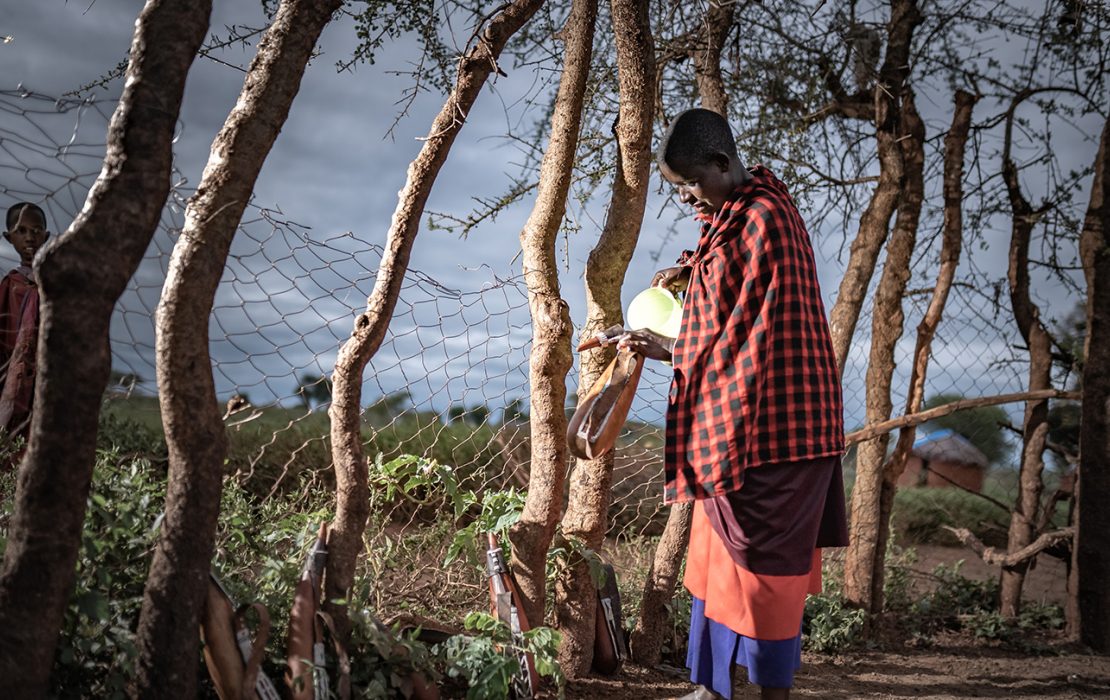
Collecting milk from livestock. Photo: Phil Kabuje/UNDP Tanzania

Seed harvesting in a field at Loiborsiret. Photo: Phil Kabuje/UNDP Tanzania
"Eligible candidates should be men or women under 30, must have access to three acres of degraded rangeland for reseeding, and should have the ability to fence the area," Nancy explains.
Neema Alfayo, one of the seed champions working in the field, has seen firsthand the potential of the initiative to combat land degradation and reforest her community. "After being chosen as a champion, my husband and I discussed and we realized that our land was going unused. With the organization's support, we planted the seeds, which naturally thrived," Neema says.
Neema’s pasture, like those of other Massai in the region, has been affected by prolonged droughts. The new plants increase the pasture’s chances to survive periods of drought and help restore degraded areas and improve conditions for cattle raising.
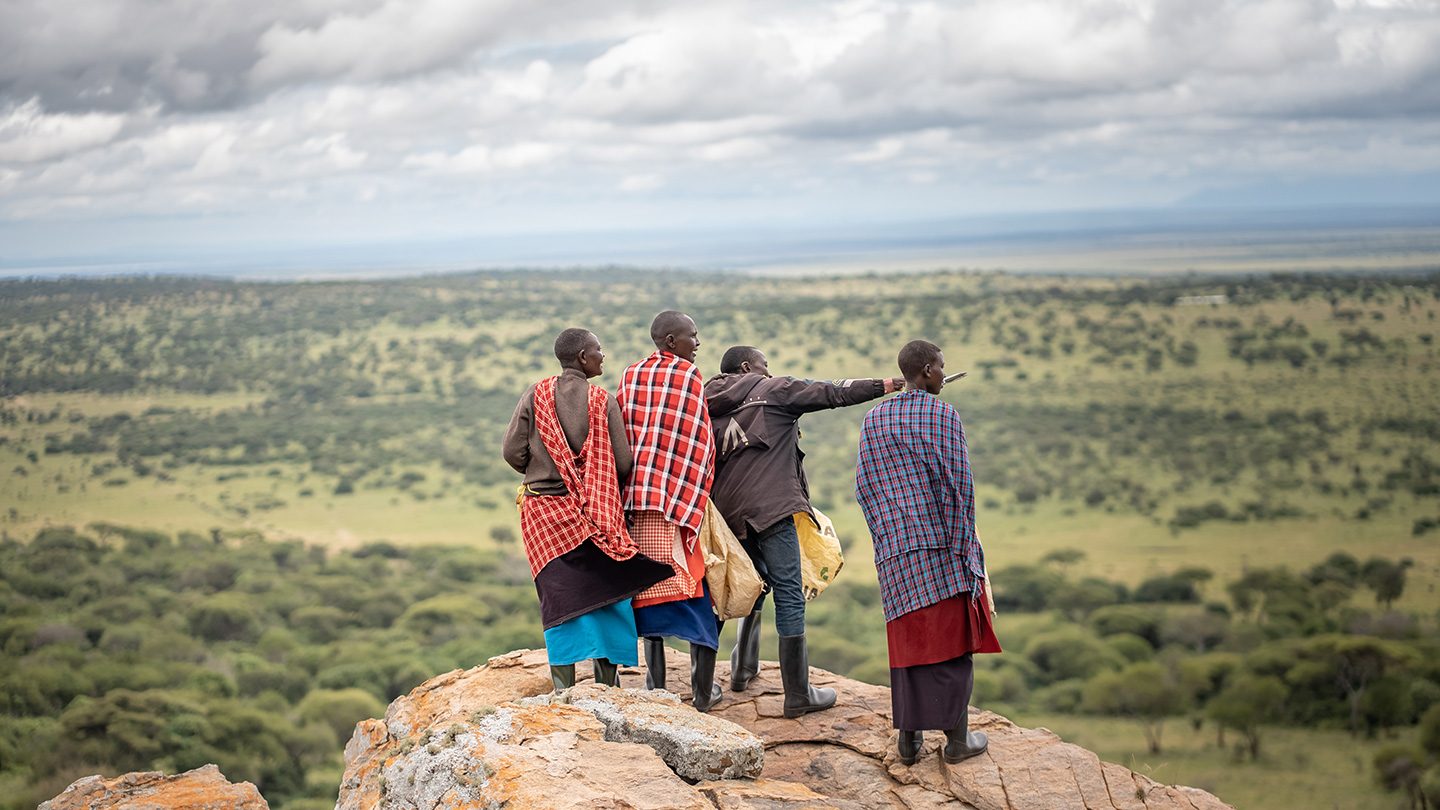
The community-led restoration of rangelands with native plants is benefiting people and nature. Photo: Phil Kabuje/UNDP Tanzania
The efforts of the Maasai communities to restore native grasslands underscore the critical role of Indigenous knowledge and community-led initiatives in combating the impacts of climate change.
These initiatives preserve the Maasai way of life but also contribute to the broader resilience of ecosystems and livelihoods in the region.
***
Although Africa contributes only a tiny fraction of global greenhouse gas emissions, it suffers disproportionately from the effects of climate change. In 2022, over 110 million people on the continent were directly impacted by weather, climate, and water-related hazards, resulting in economic damages exceeding US$8.5 billion.
UNDP is accelerating adaptation planning and investments in Africa through cross-sectoral solutions, focusing on key areas such as adaptation policy and planning, resilient livelihoods, food security and ecosystem-based adaptation.
Funded by the Adaptation Fund and the European Union, the UNDP-AFCIA programme operates within the framework of the multi-partner platform known as the Adaptation Innovation Marketplace (AIM) to advance scaled-up adaptation efforts at the local level, with a specific focus on civil society, non-governmental organizations, and innovative women entrepreneurs and young people.
Savannas Forever is among 44 organizations worldwide that have received small grants from the UNDP-AFCIA to accelerate locally-led solutions that build resilience in vulnerable communities.